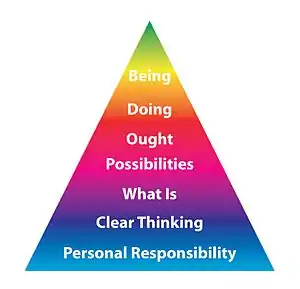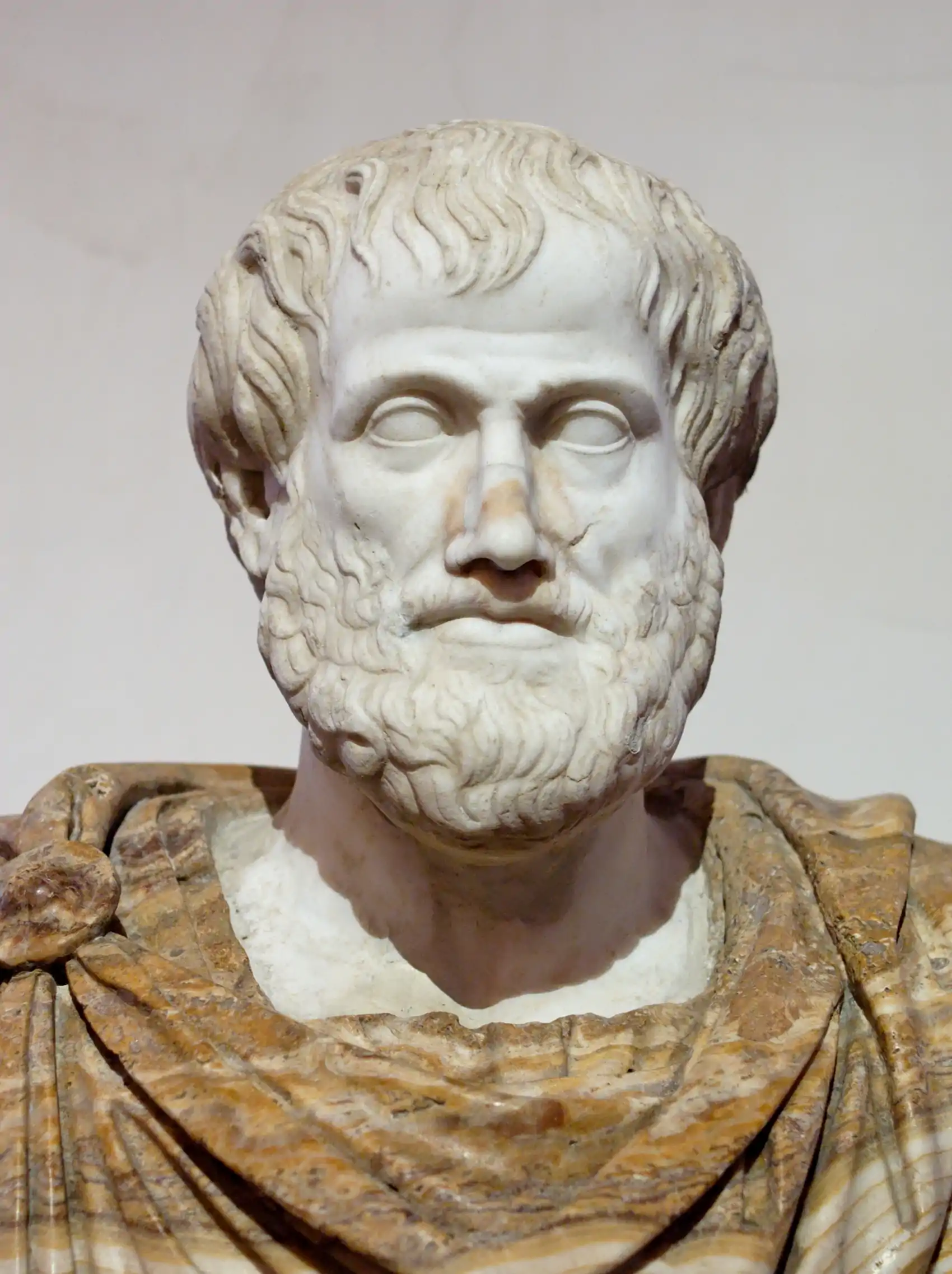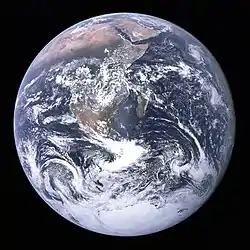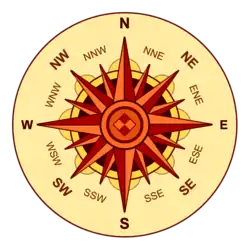—Enjoy seeking real good throughout your life.
Introduction

How do you want to live your life? Do you choose to live wisely? What are the steps that any of us can take, starting now, to live more wisely?
Wisdom is an advanced state of personal development that relies on extraordinary knowledge. Wisdom is rooted in perspectives, interpretations, values, and courageous actions. Wisdom extracts meaning and significance from information by understanding interrelationships and their implications. Wisdom is a profound understanding of our existence, the human situation, our possibilities, and especially our limitations. Wisdom is a way of interpreting knowledge by viewing it from a variety of illuminating perspectives and using human values and holistic priorities to make better sense of it. Wisdom applies this knowledge and takes creative and courageous action to solve problems, create opportunities, and increase the well-being of all. Philosopher Nicholas Maxwell defines wisdom as “the capacity, the desire, and the active endeavor to realize what is of value in life, for oneself and others.”
Values are at the core of wisdom, some say that human values will determine the future. Wise values begin by recognizing the interrelatedness of all things and follow these mutual influences to great length. This leads to openness to experience, widening of personal concerns, and a desire to increase the well-being of all. The foolish values of ignorance, selfishness, hate, greed, envy, and revenge are rejected in favor of empathy, truth, honesty, justice, cooperation, peace, compassion, universal well-being, creativity, courage, and comprehensive knowledge. These promote flourishing—optimal development as part of the whole—of all beings. Subtle and sensitive wisdom appreciates the beauty of nature, living beings, all stages of life, art, humor, craftsmanship, and remarkable efforts. It also enjoys Being in the mysterious cosmos. Wisdom is love—wanting the best for others—and is quite clever and skilled at obtaining it.
We can each intentionally develop and increase our wisdom. We must see past the many illusions that present false representations of our universe. In addition to studying and experiencing life, certain psychological and spiritual practices—such as investigative meditation—help us explore our own psyche, quiet our mind, and make it more receptive to appreciating the laws of our subjective life: ethical understanding, moral behavior, and expanding our circle of caring in space and time. Taken to their limit, meditation and related practices can help people reach the pinnacle of wisdom—an understanding of what is eternal and what is ephemeral, as well as a profound sense of the oneness that pervades all.
Dealing effectively with life’s difficult situations can help develop wisdom. Many wise people have a history of overcoming adversity. Like many others, they have faced great challenges in their lives. But instead of feeling diminished and victimized by their circumstances, they dealt with them in positive ways and grew past them.
Objectives
The objectives of this course are to:
- Gain a practical understanding of the role wisdom plays in your everyday life.
- Increase your wisdom.
- Help see beyond illusions that have occluded your view of the universe as it is.
- Explore possibilities for a better world
- Provide guidance as you are seeking real good.
- Increase well-being, worldwide.
- Inspire you to do real good.
| Completion status: this resource is ~50% complete. |
| Attribution: User lbeaumont created this resource and is actively using it. Please coordinate future development with this user if possible. |
Consider how you plan to approach this course. Completion of this course in-depth could require several years of study and practice. Alternatively, students may benefit from choosing a few topics offered by this course to explore in-depth, or from sampling various portions of this course at different times as your life unfolds and the topics become relevant. These decisions are entirely your own—use this course in any ways you find beneficial. Be careful if you skip steps; dreaming of possibilities before establishing a solid foundation can lead to woo-woo[1].
Development at Wikiversity is on-going. Many of the courses this course relies on and links to have yet to be developed, or are in very early stages of development. Notes identifying the status of these courses are provided as reference tags.
The video "Seeking Real Good" provides a short overview of several topics covered in this course.
The essay Real, Good Insights provides a lean path through much of the material of this course.
A predecessor to this course is available on-line at TheWisePath.org. It takes a different approach you may find is a helpful complement or alternative to this course.
The course contains many hyperlinks to further information. Use your judgment and these link following guidelines to decide when to follow a link, and when to skip over it.
The collection of wise affirmations can help you live more wisely each day.
This course is part of the Applied Wisdom curriculum.
If you wish to contact the instructor, please click here to send me an email or leave a comment or question on the discussion page.
There is good evidence that wisdom can be learned.[2] Let's get started.
Personal Responsibility
Wisdom begins with your own responsibility, integrity, and basic competency.
Assignment
Begin by upholding the four agreements, and expecting others do the same.
The four agreements are:
- Be Impeccable With Your Word—Speak with integrity. Say only what you mean. Avoid using the word to speak against yourself or to gossip about others. Use the power of your word in the direction of truth and love… Before speaking, consider if what you are about to say is true, helpful, and kind.
- Don't Take Anything Personally—Nothing others do is because of you. What others say and do is a projection of their own reality, their own dream. When you are immune to the opinions and actions of others, you won't be the victim of needless suffering…
- Don't Make Assumptions—Find the courage to ask questions and to express what you really want. Communicate with others as clearly as you can to avoid misunderstandings, sadness and drama. With just this one agreement, you can completely transform your life…
- Always Do Your Best—Your best is going to change from moment to moment; it will be different when you are healthy as opposed to sick. Under any circumstance, simply do your best, and you will avoid self-judgment, self-abuse and regret…
Read the book The Four Agreements[3], memorize these four agreements, uphold them yourself in every situation, and expect others to uphold them.
- Complete the course on Virtues. Practice these virtues in every situation.
- Read the book A Small Treatise on the Great Virtues[4].
- Complete the course Earning Trust. Be trustworthy.
- Complete the course Unmasking the True Self. Live as you truly are.
- Complete the course on Practicing Dialogue and begin using dialogue as your preferred mode of communication.
- Read the book The 7 Habits of Highly Effective People[5]. Practice the habits.
- Attain a level of literacy and numeracy that allow you to read to learn, and work with numbers, measurements, scaling, and probability to understand quantitative statements and express ideas quantitatively. Instruction on these essential skills is beyond the scope of this course. Please rely on other sources, including schooling, libraries, help from friends and family, on-line courses such as the Khan Academy, and other resources you are able to obtain.
- Complete the course on What Matters. Focus on what matters.
Clear Thinking

Only by thinking clearly can you distinguish what is real from all that is an illusion. Seek consistency. Learn to recognize nonsense and dismiss it.
Assignment
- Complete the courses in the Clear Thinking curriculum.[7] Think Logically. Identify and challenge fallacies.
- Complete the course Critical Thinking Skills[10] . Think critically. Maintain a healthy skepticism. Ask questions for clarification.
- Rely on the Scientific Method to test theories and establish facts. Use evidence to examine and evaluate ideologies.
- Complete the course Knowing how you know. Develop and apply your theory of knowledge. Review your beliefs to ensure they are consistent with your theory of knowledge.
- Read the book Leaving Truth.[11] Know how you know.
- Use only reliable sources.
- Complete the course on Socratic Methods.
- Read the book The Thinker’s Guide to The Art of Socratic Questioning.[12]
- Apply Socratic Methods to examine beliefs and seek real good.
- Tolerate no falsehoods.
- Tolerate no fallacies.
- If you have studied this course conscientiously up to this point, and have been taught theist beliefs as a young child, you may be feeling conflicted. In that case the course Beyond Theism may be helpful.
- Learn the skills of Problem Finding.
- Complete the Problem Finding course.
- Ask "What is the problem?" What is the real problem?" and "What is the problem really?".[13]
- Ask "What do I want?", "What is true?", and "What am I going to do about it?"
- Discover the real problem.
- Complete the course Global Perspective. Adopt and maintain a global perspective.
What Is
Understanding how our universe actually is provides a firm foundation for imagining how it ought to be.

Assignment
The goals of this assignment are to learn what is real and what is true about the world we live in.
- Study Big History[14]. Consider events in the context of big history.
- Study Biology[15] with an emphasis on DNA, Evolution, Human anatomy, and human sexuality.
- Complete the course on Human Nature.[16] Accept human nature as it is rather than try to change it.
- Complete the course on What you can change and what you cannot.
- Study Emotional Competency. Attain emotional competency—develop the essential social skills to recognize, interpret, and respond constructively to emotions in yourself and others.
- Respond constructively to emotions in yourself and others.
- Read the book Emotional Intelligence[17]. Understand the profound role of emotions in human nature and human interactions.
- Read the book Passion and Reason[18]. Understand the peculiar logic of our emotions.
- Read the book Destructive Emotions[19]. Don't allow emotions to occlude reality.
- Read the book Emotional Awareness[20]. Overcome Obstacles to Psychological Balance and Compassion.
- Study the course on Developing Empathy.[21] Develop accurate empathy.
- Study the course on Constructive Relationships.[22] Develop constructive relationships.
- Complete the course on Pursuing Collective Wisdom. Assess the collective wisdom of any groups you belong to and work to improve the collective wisdom of that group
- Study Chemistry[23] with an emphasis on Atomic Structure, Elements, and Chemical Bonding.
- Study Physics[24] with an emphasis on Newtonian Mechanics, Thermodynamics, Maxwell’s Equations, Relativity, Quantum Mechanics, Particle Physics, and Astrophysics.
- Study Geology[25] with an emphasis on Plate Tectonics.
- Complete the course on Exploring Social Constructs. Learn to recognize the social constructs that influence us every day.
- Complete the course on Commerce[26]. Learn how goods and services are exchanged.
- Complete the course on Government[27]. Learn how rights and duties are shared among citizens and governments.
- Read the essay Economic Faults. Rethink Money.[28]
- Read the essay Genesis of Debt.
- Read the essay What there is.
- Complete the course on Systems Thinking[29]. Learn to understand how each element contributes to, and is acted upon by the systems it is a part of.
- Complete the course on Grand Challenges. Use these grand challenges to establish priorities.
Possibilities—What Can Be
Generate new and useful alternatives for living. Exercise divergent thinking.
.jpg.webp)
Assignment
- Complete the courses in the Possibilities curriculum. Imagine what can be.
- Complete the course on Flourishing[32]. Increase human flourishing.
- Complete the course on Beauty[35] . Savor beauty.
- Complete the course on Aspirations[36]. Unleash real hope.
What Ought to Be
Choose alternatives wisely to help create the wonderful world we all want. Exercise convergent thinking guided by a firm sense of morality and reality.

Assignment
- Complete the course on Dignity. Preserve and protect the dignity of yourself and all others.
- Complete the course on Wisdom. Live wisely.
- Complete the course segment on Exemplars of Wisdom. Model your behavior after these exemplars of wisdom.
- Complete the course segment on Wise decision making. Make wise decisions.
- Read the book Wisdom: From Philosophy to Neuroscience[37]. Learn the eight neural pillars of wisdom. Strengthen your use of each of these pillars.
- Complete the course on Assessing Human Rights. Work to advance and protect human rights, worldwide.
- Complete the course on Moral Reasoning. Learn how to determine the right thing to do.
- Complete the course on Living the Golden Rule. Live the golden rule.
- Read the book Ethics and the Golden Rule[38]. Treat others only as you consent to being treated in the same situation.
- Complete the course Understanding Fairness. Always treat people fairly.
- Complete the course Transcending Conflict. Work to transcend conflict.
- Read the book Moral Tribes[39]. Practice deep pragmatism from a global perspective.
- Complete the course on Limits to Growth. Understand limits to growth when making decisions that impact these limits.
- Complete the course on Civic Responsibility[40]. Be a good citizen. Engage your community. Vote wisely.
- Read this essay on Seeking Real Good. Evaluate your actions by asking: Is this real? Is this good?
- Complete the course on Flourishing[41]. Enjoy flourishing.
- Complete the course Envisioning Our Future. Describe the wise world you want. Work to create that world.
Do Good

Act to help create the wise world you want.
"Action indeed is the sole medium of expression for ethics." — Jane Addams
Assignment
- Read the the essay you wrote when completing the course Envisioning Our Future.
- Complete the course on Finding Courage.
- Find your courage to do real good. Act courageously.
- Work to advance human rights worldwide, perhaps by completing the assignments in the course Assessing Human Rights.
- Complete the course Doing Good. Do the most good you can do.
Be Good

Enjoy being.
"Beyond a wholesome discipline, be gentle with yourself. You are a child of the universe no less than the trees and the stars; you have a right to be here."—Max Ehrmann, "Desiderata"
Assignment
- Complete the course Quiet Mind. Control discursive thoughts; cultivate pure awareness
- Develop and exercise the wise traits described at: http://www.thewisepath.org/wisdom.htm
- Complete sections of the on-line course Wisdom 101 that interest you.
- Many of the resources freely available at https://jackkornfield.com/ are relevant to being good. Study those that seem helpful.
Research Projects
Researchers who are interested in expanding opportunities for people to live wisely are encouraged to participate in these ongoing research projects:
Further Reading
Wisdom is too subtle and complex to be captured by any list of assignments. Here are books that explore the spirit of wisdom in its elusive complexity and mystery.
- Pirsig, Robert M. (1974). Zen and the Art of Motorcycle Maintenance. William Morrow & Company. p. 418. ISBN 0-688-00230-7.
- Smith, Emily Esfahani (January 10, 2017). The Power of Meaning: Crafting a Life That Matters. Crown. p. 304. ISBN 978-0553419993.
- Tippett, Krista (April 5, 2016). Becoming Wise: An Inquiry into the Mystery and Art of Living. Penguin Press. p. 304. ISBN 978-1594206801.
- Pinker, Steven (February 13, 2018). Enlightenment Now: The Case for Reason, Science, Humanism, and Progress. Penguin Books Limited/. p. 576. ISBN 978-0-525-42757-5.
- Gilovich, Thomas; Ross, Lee (December 1, 2015). The Wisest One in the Room: How You Can Benefit from Social Psychology's Most Powerful Insights. Free Press. p. 320. ISBN 978-1451677546.
- Lombardo, Thomas (October 27, 2017). Future Consciousness: The Path to Purposeful Evolution. Changemakers Books. p. 834. ISBN 978-1780999852.
- Carroll, Sean (May 16, 2017). The Big Picture: On the Origins of Life, Meaning, and the Universe Itself. Dutton. p. 480. ISBN 978-1101984253.
I have not yet read the following books, but they seem interesting and relevant. They are listed here to invite further research.
- (Evaluate the book A Handbook of Wisdom - Psychological Perspectives, by Robert Sternberg )
- (Evaluate the book Buddha's Brain - The Practical neuroscience of happiness, love and wisdom, by Rick Hanson )
- (Evaluate the book Choosing Wisdom, by Margaret Plews-Ogan, Justine Owens )
Also, the books assigned throughout this course are gathered in this reading list. Students may find it convenient to browse this list and explore titles before choosing to read a particular book.
References
- ↑ James Randi began his career as a magician named The Amazing Randi, and later chose to devote most of his time to investigating paranormal, occult, and supernatural claims, which he collectively calls "woo-woo"
- ↑ See, for example the "Developing Wisdom" video from the evidence-based wisdom animation series.
- ↑ Ruiz, Don Miguel (November 7, 1997). The Four Agreements: A Practical Guide to Personal Freedom (A Toltec Wisdom Book). Amber-Allen Publishing. p. 160. ISBN 978-1878424310.
- ↑ Comte-Sponville, André (September 1, 2002). A Small Treatise on the Great Virtues: The Uses of Philosophy in Everyday Life. Picador. p. 368. ISBN 978-0805045567.
- ↑ Covey, Stephen R. (November 19, 2013). The 7 Habits of Highly Effective People: Powerful Lessons in Personal Change. Simon & Schuster. p. 432. ISBN 978-1451639612.
- ↑ "As regards his method, Aristotle is recognized as the inventor of scientific method because of his refined analysis of logical implications contained in demonstrative discourse, which goes well beyond natural logic and does not owe anything to the ones who philosophized before him." – Riccardo Pozzo From: Riccardo Pozzo (2004) The impact of Aristotelianism on modern philosophy. CUA Press. p.41. ISBN 0-8132-1347-9
- ↑ Until the complete curriculum is available, it may be helpful to study the materials available from the Khan academy courses on critical thinking or other materials available on the topic.
- ↑ Weston, Anthony (November 14, 2008). Rulebook for Arguments. Hackett Publishing Co, Inc. p. 104. ISBN 978-0872209541.
- ↑ Copi, Irving M.; Cohen, Carl (June 20, 2001). Introduction to Logic. Prentice Hall. p. 647. ISBN 978-0130337351.
- ↑ This course is currently a stub and needs substantial work to become complete. Until a more complete course is available, it may be helpful to study the materials available from the Khan academy courses on critical thinking or other materials available on the topic.
- ↑ Sewell, Keith (August 10, 2013). Leaving Truth. KSMarine Services. p. 102. ISBN 978-1456617608.
- ↑ Paul, Richard; Elder, Linda (2007). The Thinker's Guide to The Art of Socratic Questioning. The Foundation for Critical Thinking. p. 96. ISBN 978-0944583319.
- ↑ Gause, Donald C.; Weinberg, Gerald M. (March 1, 1990). Are Your Lights On?: How to Figure Out What the Problem Really Is. Dorset House Publishing Company. p. 176. ISBN 978-0932633163.
- ↑ Until Wikiversity offers a Big History course, students will do well with the external course linked.
- ↑ The Wikiversity school of Biology is early in its development. Students may need to rely on other materials until the Wikiversity biology courses mature.
- ↑ Course needed. Until a course is available, perhaps materials at human nature, human nature, and Human Interaction can be helpful.
- ↑ Goleman, Daniel (September 27, 2005). Emotional Intelligence: Why It Can Matter More Than IQ. Bantam Books. p. 384. ISBN 978-0553383713.
- ↑ Lazarus, Richard S; Lazarus, Bernice N. (April 11, 1996). Passion and Reason: Making Sense of Our Emotions. Oxford University Press. p. 336. ISBN 978-0195104615.
- ↑ Goleman, Daniel (March 30, 2004). Destructive Emotions: A Scientific Dialogue with the Dalai Lama. Bantam. p. 448. ISBN 978-0553381054.
- ↑ Dalai Lama; Ekman, Paul (March 31, 2009). Emotional Awareness: Overcoming the Obstacles to Psychological Balance and Compassion. Holt Paperbacks. p. 288. ISBN 978-0805090215.
- ↑ Course needed. Until it is developed, perhaps the resources at: http://www.wisdompage.com/2016%20Articles/Empathy%20and%20Wisdom%20Moss.pdf can be helpful.
- ↑ Course needed. Until it is developed, perhaps the resources at: http://www.emotionalcompetency.com/rules.htm#Better can be helpful.
- ↑ The Wikiversity school of Chemistry is early in its development. Students may need to rely on other materials until the Wikiversity chemistry courses mature.
- ↑ The Wikiversity Physics topic is early in its development. Students may need to rely on other materials until the Wikiversity physics courses mature.
- ↑ The Wikiversity geology courses are early in development. Students may need to rely on other materials until the Wikiversity geology courses mature.
- ↑ Course needed.
- ↑ Course needed.
- ↑ See: http://globalcircle.wikispaces.com/Rethinking+Money
- ↑ Course needed. Until it is developed, the materials at: http://www.thewisepath.org/knowing.htm may be helpful.
- ↑ Zander, Benjamin; Stone Zander, Rosamund (September 24, 2002). The Art of Possibility: Transforming Professional and Personal Life. Penguin Books. p. 201. ISBN 978-0142001103.
- ↑ von Oech, Roger (May 5, 2008). A Whack on the Side of the Head: How You Can Be More Creative. Grand Central Publishing. p. 256. ISBN 978-0446404662.
- ↑ A course in flourishing is needed.
- ↑ Ricard, Matthieu (January 5, 2007). Happiness: A Guide to Developing Life's Most Important Skill. Little, Brown and Company. p. 304. ISBN 978-0316167253.
- ↑ Seligman, Martin E. P. (February 7, 2012). Flourish: A Visionary New Understanding of Happiness and Well-being. Atria Books. p. 368. ISBN 978-1439190760.
- ↑ Course Needed. Until a course is developed, perhaps the Beauty, awe topic of the course on What Matters can be helpful.
- ↑ Course needed. Until a course is developed, perhaps the materials at: http://emotionalcompetency.com/hope.htm can be helpful.
- ↑ Hall, Stephen S. (March 8, 2011). Wisdom: From Philosophy to Neuroscience. Vintage. p. 352. ISBN 978-0307389688.
- ↑ Gensler, Harry J. (March 21, 2013). Ethics and the Golden Rule. Routledge. p. 256. ISBN 978-0415806879.
- ↑ Greene, Joshua (December 30, 2014). Moral Tribes: Emotion, Reason, and the Gap Between Us and Them. Penguin Books. p. 432. ISBN 978-0143126058.
- ↑ Course needed.
- ↑ Course needed.
- ↑ Miller, William (February 19, 2002). The Mystery of Courage. Harvard University Press. p. 360. ISBN 978-0674008267.
- ↑ Warrell, Margie (January 2, 2009). Find Your Courage: 12 Acts for Becoming Fearless at Work and in Life. McGraw-Hill Education. p. 320. ISBN 978-0071605373.
- ↑ Kidder, Tracy (August 25, 2009). Mountains Beyond Mountains: The Quest of Dr. Paul Farmer, a Man Who Would Cure the World. Random House. p. 332. ISBN 978-0812980554.
.jpeg.webp)